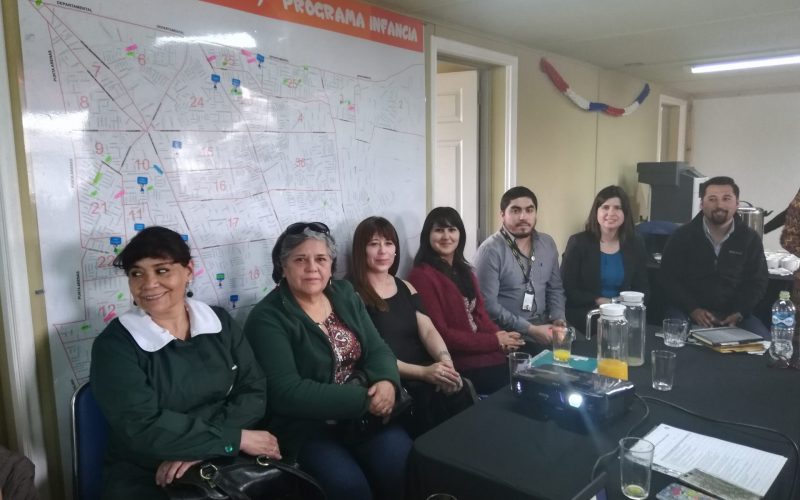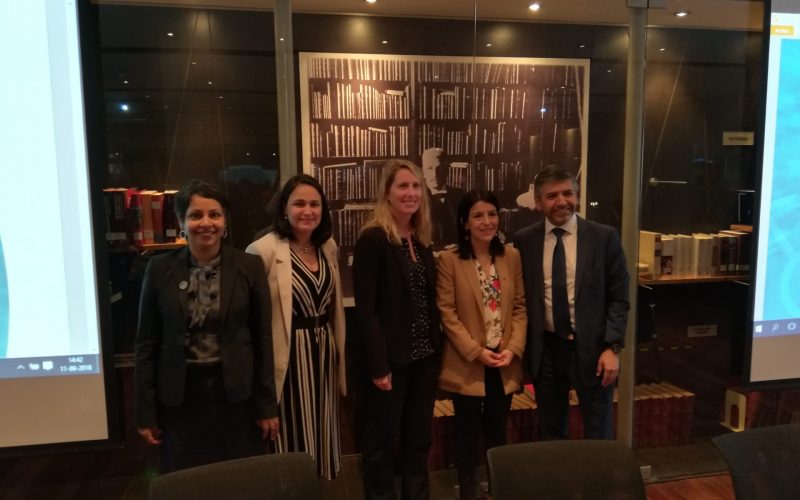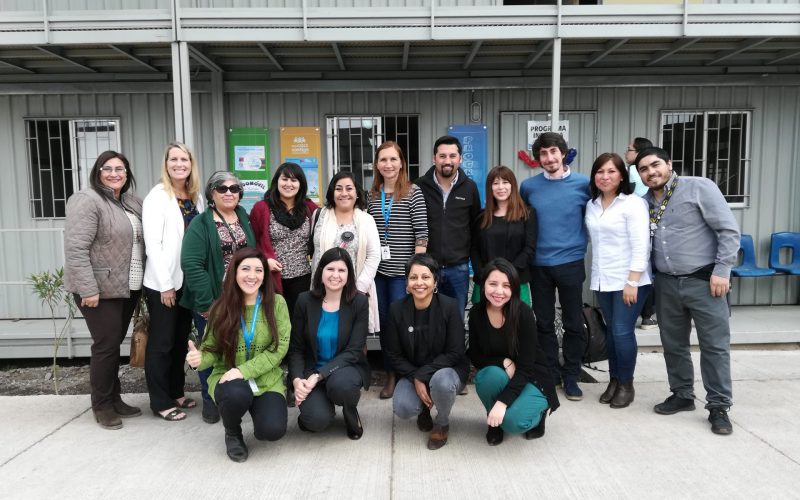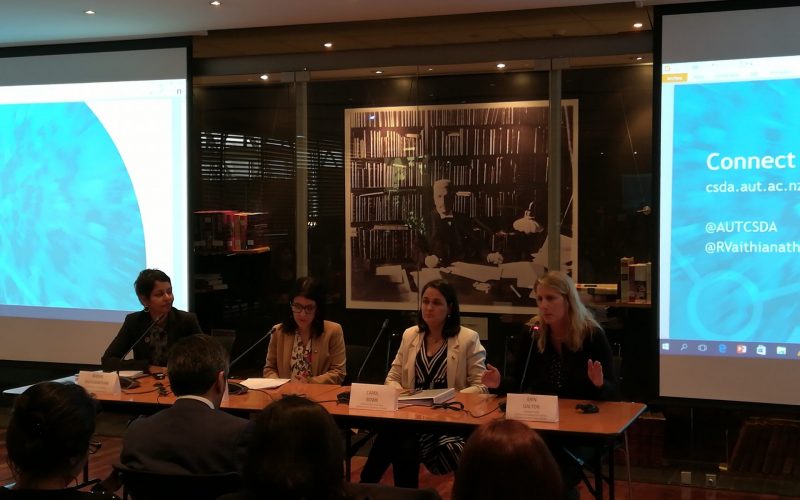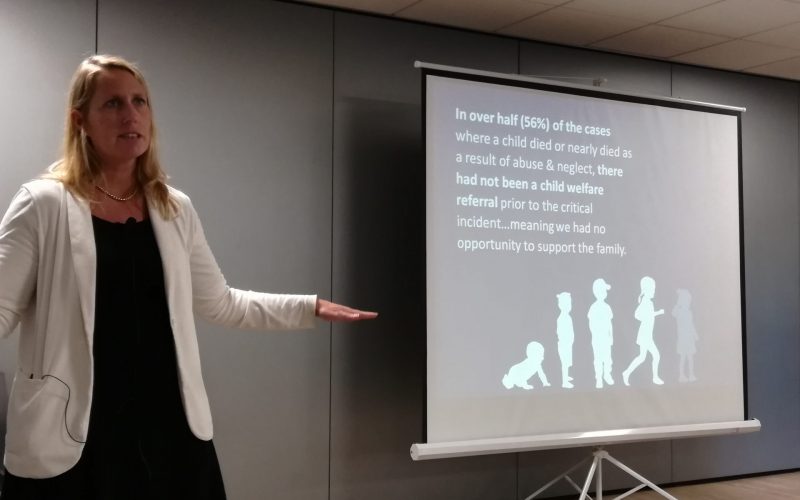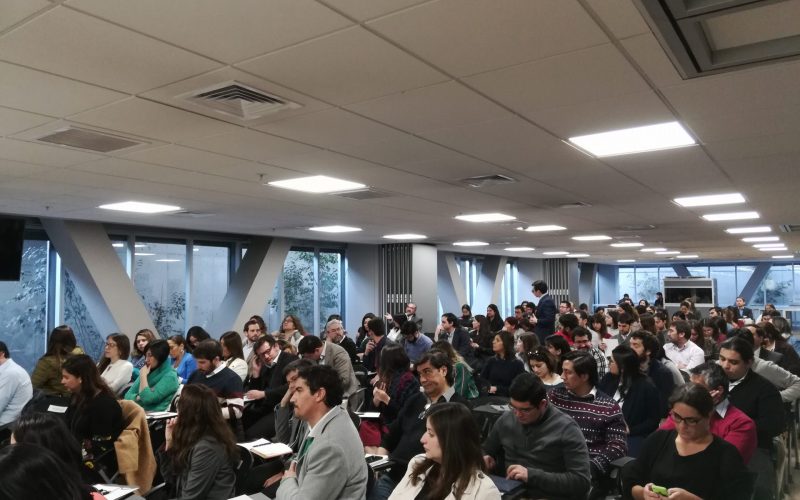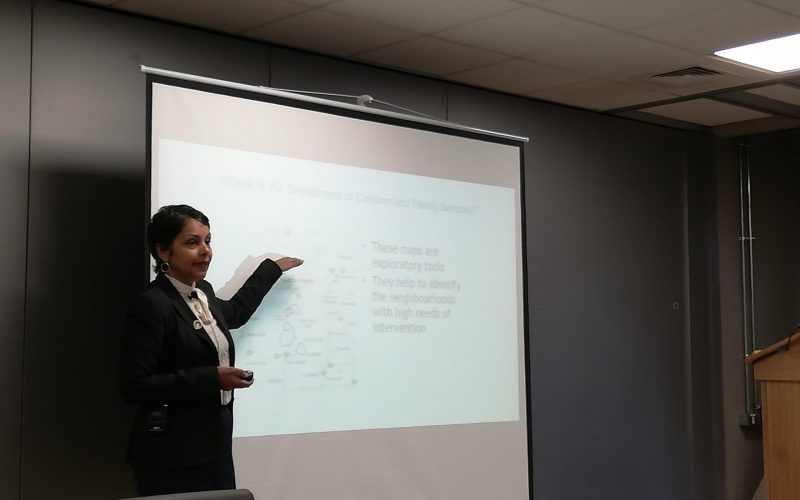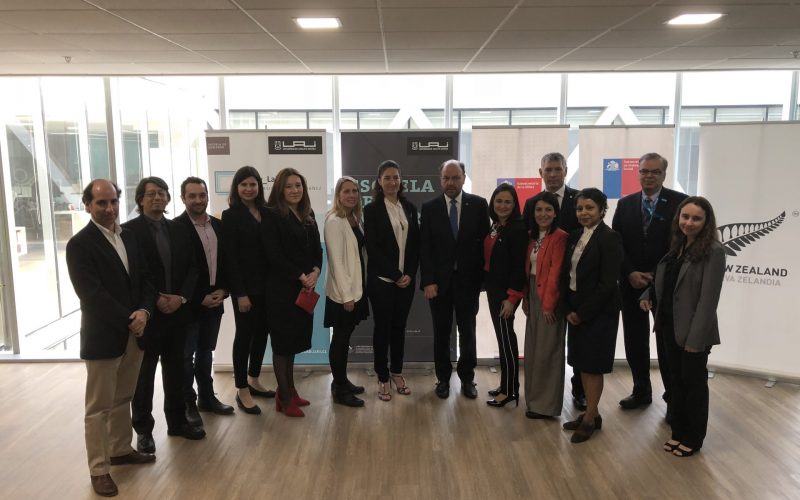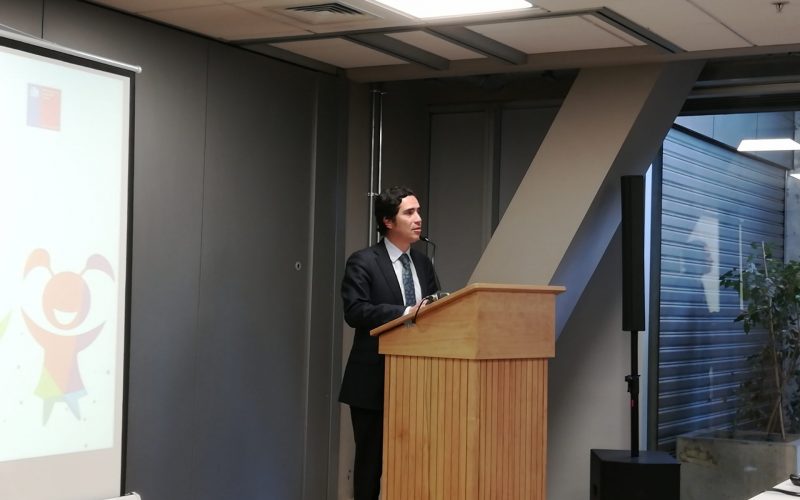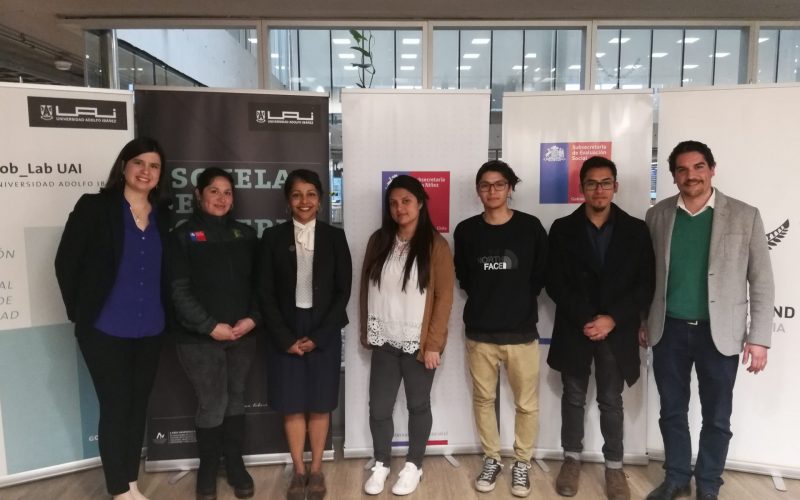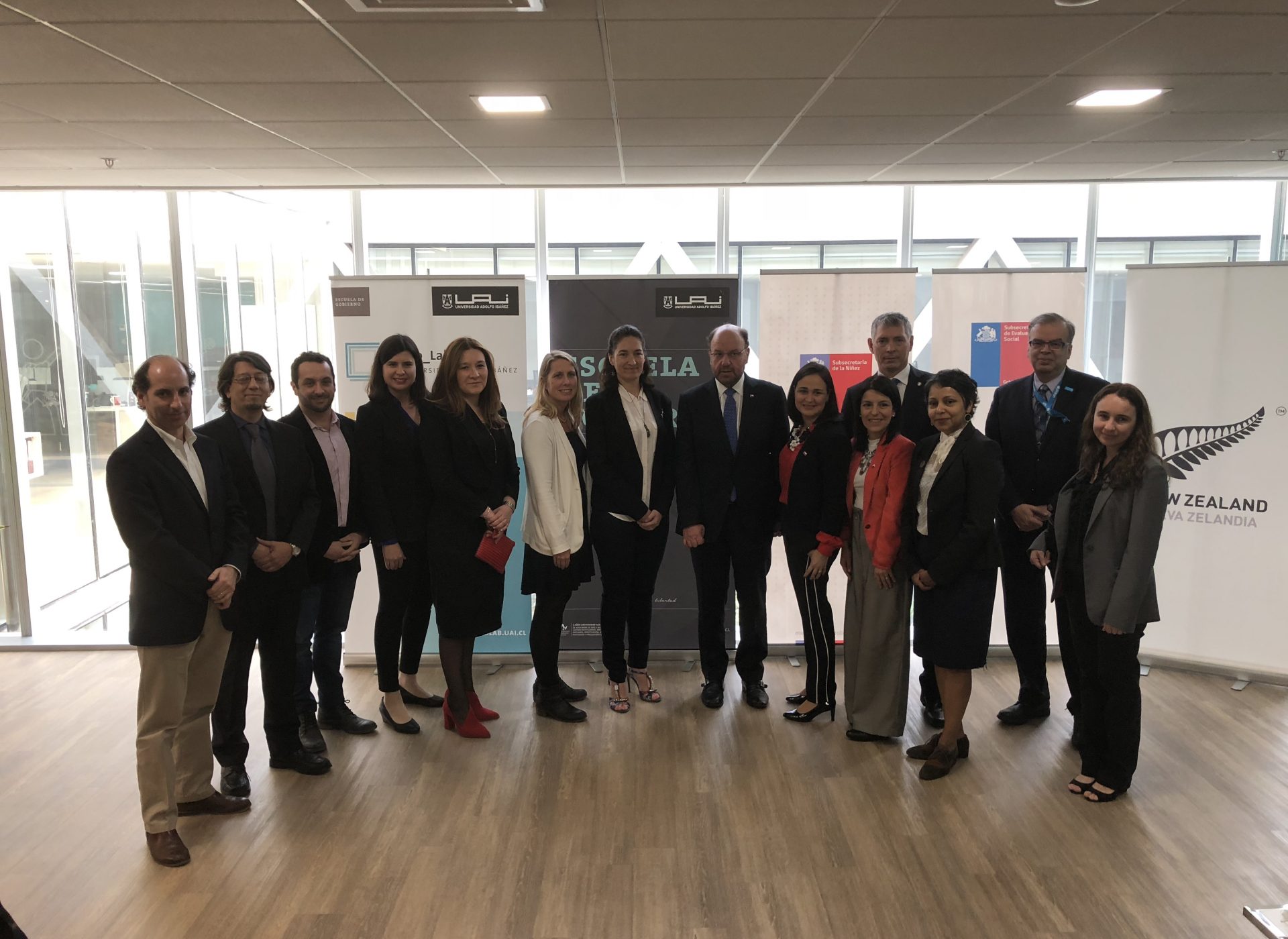
Invited by the public innovation laboratory attached to the GobLab UAI School of Government and thanks to the collaboration of the New Zealand Embassy – which supported the application for a cooperation fund of the New Zealand government.
Predictive risk models to protect children
August 5, 2019
*Gallery: GobLab UAI brought international experts to Chile to learn about the best early warning practices.
Invited by GobLab, the public innovation laboratory attached to the UAI School of Government and thanks to the collaboration of the New Zealand Embassy – which supported the application for a New Zealand government cooperation fund -, Big Data experts, Rhema Vaithianathan and Erin Dalton made a five-day visit to our country, to explain how child protection can be strengthened through data analysis.
Rhema Vaithianathan is co-director and co-founder of the Center for Social Data Analytics, a health economics scholar at Auckland University of Technology, and a senior research fellow at the Singapore Management University School of Economics. In addition, she led the international research team that developed Allegheny’s family diagnostic tool (a predictive risk model for child abuse) in 2016, and currently has a leading role in several other projects on predictive analytics in the United States.
Erin Dalton, on the other hand, is a Master of Science from the Heinz School of Public Policy at Carnegie Mellon University. She has held public policy positions in the Allegheny County Executive Office and the United States Department of Justice. As Deputy Director of the Office of Data Analysis, Research and Evaluation, Erin Dalton is responsible for directing research and evaluation activities of the Department of Human Services in Allegheny County, United States.
“The purpose of the visit was to publicize to a wider community the best international practices in the design and implementation of early warning systems using predictive models, from the point of view of government and academia. In that sense, the presence of Erin Dalton was very important, because she led the implementation of these systems from the government offering more than an academic point of view,” said María Paz Hermosilla, director of the GobLab UAI.
Among the activities they carried out during their stay in Chile, the Seminars at the Valparaíso Congress “Predictive risk model for early warning” and in Santiago, “Strengthening child protection through data analysis”. The latter was organized together with the Ministry of Social Development, the Undersecretary of Social Evaluation, Alejandra Candia, the head of the Undersecretariat of Children, Carol Bown, and the academic of the School of Psychology of the UAI, María Josefina Escobar.
During the seminar held at the Ministry of Social Development, the Undersecretary of Social Evaluation, assessed this instance stating that “this innovative preventive targeting instrument will allow the State to change the course of the history of hundreds of children at risk of vulnerability, allowing us to reach in time those who need help to avoid complex situations that often end up being irreversible for them and also for their families.”
For its part, the undersecretary of Children, Carol Bown said that for her division, to know the testimonies of Rhema Vaithianathan and Erin Dalton reaffirmed that “it is essential to have an alert system at the national level… our design of territorial descent contemplates a response through specific actions to support families in overcoming these situations. In this sense, the international experience and the advances developed by national and international organizations that intervene in the subject of childhood, without a doubt constitute a great contribution to achieve these objectives”.
The researchers also met with the Ombudsman for Children, Patricia Muñoz; officials of the Undersecretariat of Children and Social Evaluation; officials of the Office for the Protection of Rights of the Municipality of Concón; with the Chile Crece Contigo program team of the Municipality of Florida; with government authorities and directors of child protection NGOs, in addition to talking with the UAI rector, Harald Beyer.
After her visit, Rhema Vaithianathan commented that both she and Erin Dalton enjoyed the opportunity to interact with groups that are interested in the potential of predictive risk models for vulnerable children: “thanks to our UAI hosts and the Embassy of New Zealand, Erin Dalton and I met a wide variety of people and learned a lot about the unique challenges facing child protection in Chile.” Likewise, the co-founder of the Center for Social Data Analytics stressed that in all the activities and conversations with frontline workers “I found a strong and genuine interest in learning about predictive risk models and how they could be implemented for a social impact.”


